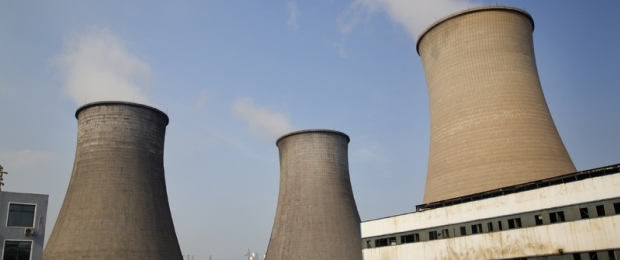
An independent UK could become dirty man of Europe again
Polls predicts fervently anti-EU parties, such as the UK Independence Party, will make significant inroads in this month's European elections. And if David Cameron wins the next general election, he has pledged to hold an in/out referendum on the EU. However Stephen Tindale, associate fellow at the Centre for European Reform, argues indepdence would put at risk all the environmental and health benefits that flow from EU membership.
British environmental measures tend to be taken in response to major, noticeable crises. London’s 1858 ‘great stink’, which made it impossible for politicians to work in Parliament, prompted them to get a sewage system constructed. London’s ‘great smog’ in 1952, which killed at least 10,000 people, led to a ban on the burning of coal in domestic fires.
Such major crises are, thankfully, not very frequent, so UK politicians normally feel able to put environmental issues low down the agenda. Since the UK joined the Common Market in 1973, most of the its green policies have emanated from Brussels, not London.
The EU has regulated air pollution since the 1980s, limiting levels of pollutants such as sulphur dioxide, oxides of nitrogen, particulates, lead, benzene, carbon monoxide and ground-level ozone. The EU also regulates how much pollution industrial facilities, including power stations, are allowed to emit.
And vehicle exhaust fumes are also controlled. Catalytic converters, which reduce carbon monoxide and nitrogen oxide emissions, have been mandatory on petrol vehicles since 1992, and on diesel vehicles since 2008. The sale of leaded petrol was banned in 2005.
As a result, air quality in Britain has improved. UK emissions of sulphur dioxide fell by 89 per cent between 1990 and 2010, and nitrogen oxides by 62 per cent. Yet the air in most UK cities is not clean enough to meet the EU standards or, more importantly, to protect human health. In 2010, 40 out of the UK’s 43 air quality zones (all in major cities) exceeded nitrogen dioxide limits. London has the highest levels of nitrogen dioxide of any European capital city.
Air pollution causes 29,000 premature deaths in the UK each year. Many more people are killed by vehicle pollution than die in road accidents. Despite this, successive governments have argued for more time to meet EU rules, while doing little to improve air quality.
The European Commission recognises that existing air quality standards are not strict enough. In December 2013 it published sensible proposals to strengthen them, based on the advice of the World Health Organisation. So continued EU membership will mean continued pressure on UK politicians for cleaner air.
British drinking water has been of high quality since the early 20th century, and remains so. The UK’s water challenges are much more about waste water. For most of the last century, there was little investment in the UK sewerage systems. The 1976 bathing water directive and 1991 urban waste water treatment directive have therefore had significant effects in the UK. Successive governments sought to use every loophole in the water directives, and allowed the discharge of untreated sewage into the sea until 1998, longer than any other European country.
A Britain outside the EU could in theory follow Norway and set high environmental standards. But environmental issues are taken seriously by most Norwegian politician. Most UK politicians regard them as ‘green frippery’. In practice, a UK outside the EU would be much more likely to return to being ‘the dirty man of Europe’ – the name we were given before EU rules forced us to clean up our act.
